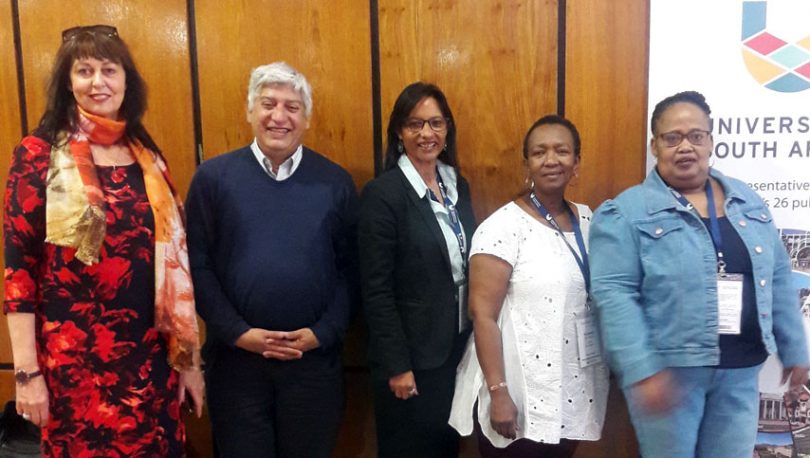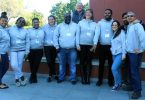A CPUT delegation attended the first-ever Universities South Africa (USAf) Higher Education conference held recently in Pretoria.
The conference aimed to bring together stakeholders from various higher education institutions and government departments to explore creative ways to reconfigure the South African Higher Education landscape within the current rapid and ever-changing and developing environment. They were taking into consideration the past, present and future context.
The theme was “Reinventing South Africa’s Universities for the future”
Prof Marshall Sheldon, Acting Deputy Vice-Chancellor: Research, Technology, Innovation and Partnerships, said the conference explored the important pillars in higher education, namely, teaching and learning; and research, technology, innovation, postgraduate studies; partnerships and engagement; with a strong focus on cross-cutting themes related to transformation, the fourth industrial revolution, the entrepreneurial university, and the disruption of the higher education system across these various themes.
Within the research, technology, innovation, postgraduate studies and partnerships pillar there were specific presentations and discussions related to: ethics and integrity, open access, research support and the state of the research enterprise in SA.
Within the teaching and learning domain there were a range of engagements related to the national plan for a more integrated post-school education and training system and processes; student success and challenges; new integrated technologies and its impact on higher education’s future; higher education funding and specifically student funding at both the undergraduate and postgraduate level; and work-integrated learning.
One of the cross-cutting themes was the entrepreneurial university for the future and repositioning graduates as creators of work.
Prof René Pellissier, Director: Strategic Initiatives and Partnerships, was requested to discuss the potential of PhDs to support entrepreneurship to address SA’s economic needs in the workplace. The presentation was titled: Keeping up in an age of Sophias.
“I explored the future world of work and the potential of AI (Artificial Intelligence) replacing work and, with that, the purpose of higher education and the potential of PhDs and the redesign of the PhD programme to address these. In this session, there was a focus on entrepreneurship as expressed by UCT’s Genesis project and the entrepreneurial activities at DUT that both are noteworthy to CPUT.”
Nonkosi Tyolwana, Director: Transformation, Social cohesion and Diversity Unit, said the conference also deliberated on Transformation by design of Staff and Student Centrism, as one of the key indicators for reinventing universities for the future.
“Staff and Student Centrism is embedded in equity patterns, student life, access, success rate, administration, governance, curriculum, teaching and learning, community engagement and research. It also defines institutional culture as the collective outcomes of the six economies that produce the institutional structure of the university. The six economies are Material, Administrative, Socio-cultural, Affective, Intellectual and Political economies.”
Kuselwa Marala, Acting Registrar: Academic Administration, said that overall, in the various sessions of the conference, there was a common thread “which emphasised the need of higher education, as it re-invents itself, to take cognisance of its historical past, where issues that need to be transformed are named and dealt with in a transparent and decisive manner. The student voice in the re-invention exercise was deemed as critical”.







